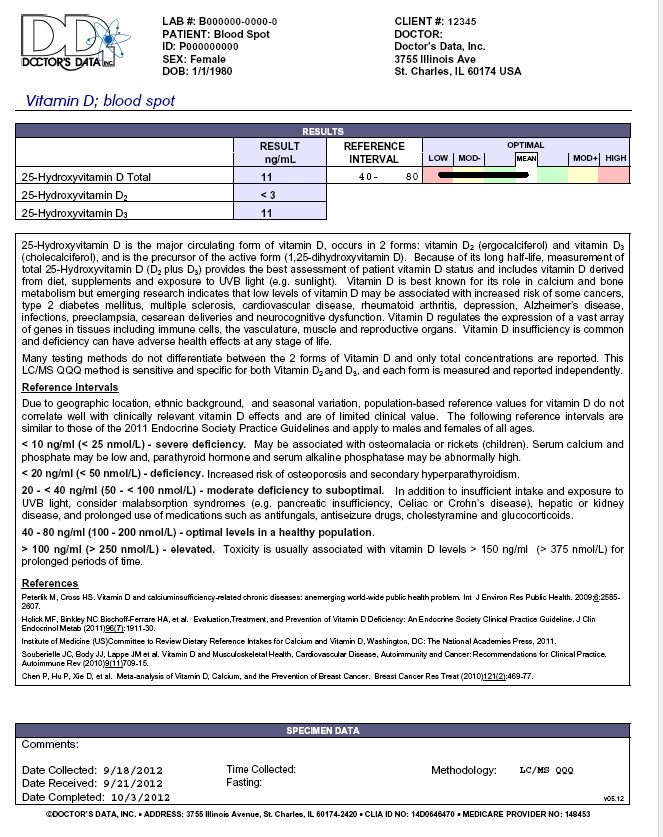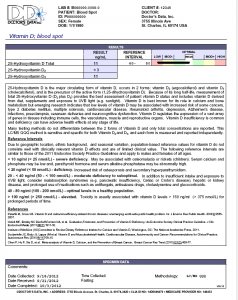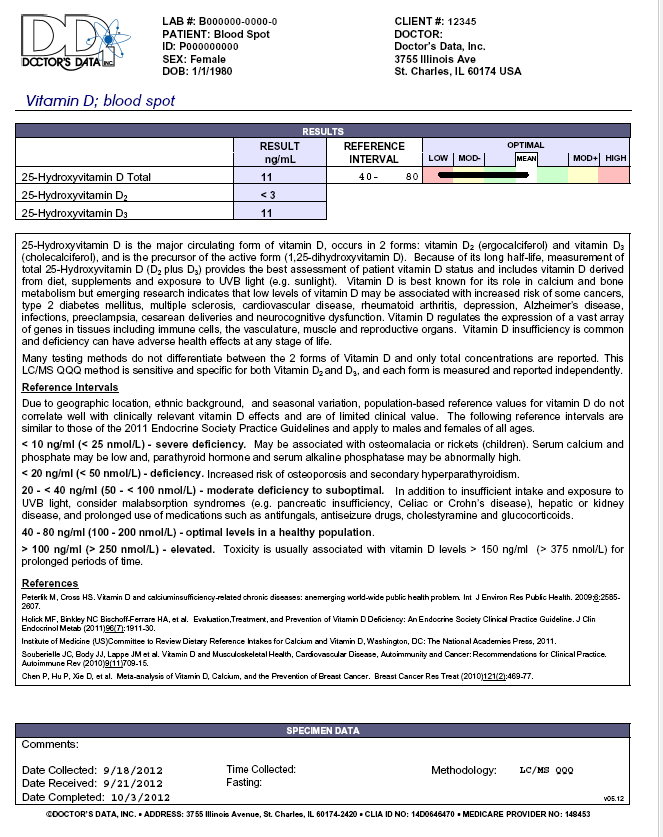Home / Shop
Doctors Data Vitamin D Test Blood Spot








- Description
- Specifications
- Customer Reviews (0)
Why test Vitamin D
Vitamin D is known for its role in bone health, calcium absorption, immune function, neurodegeneration, cardiovascular issues, and other conditions like insulin utilization, and has anti-cancer properties. Vitamin D deficiency is very common even if you live in a sunny state. By increasing low Vitamin D levels you can work toward improving your immune, neurological, and bone issues.
Is your Vitamin D level Optimal?

*NOTE: This test is not available to New York residents
This test is useful for
- Infections with Viruses
- Immune Function
- Respiratory Infections
- Bone Health
- Calcium Absorption
- Cardiovascular Disease
- Depression
- Other Infections
- Multiple Sclerosis
- Alzheimer’s Disease
- Neurocognitive Dysfunction
- Preeclampsia
- Rheumatoid Arthritis
- Type 2 Diabetes
NOTE: Your Doctors Data Vitamin D Blood Spot Test report will be sent to the email used when ordering, unless otherwise specified. If you have further questions after receiving your report, a Telehealth Appointment with Dr. Ray Psonak is available.
FAQ's about At Home Health Tests
Detailed Information
Why do a Vitamin D blood test? Vitamin D is best known for its role in calcium and bone metabolism. Emerging research indicates that low levels of vitamin D may be associated with increased risk of some cancers, type 2 diabetes, multiple sclerosis, cardiovascular disease, rheumatoid arthritis, depression, Alzheimer’s disease, infections, preeclampsia, cesarean deliveries and neurocognitive dysfunction. Vitamin D regulates the expression of a vast array of genes in tissues including immune cells, the vasculature, muscle and reproductive organs. Vitamin D insufficiency is common and deficiency can have adverse health effects at any stage of life. 25-Hydroxyvitamin D is the major circulating form of vitamin D. It occurs in two forms: vitamin D2 (ergocalciferol) and vitamin D3 (cholecalciferol), both are the precursors of the active form (1,25-dihydroxyvitamin D). The active form has a long half-life measurement of total 25-Hydroxyvitamin D (D2 plus D3), providing the best assessment of the patient’s vitamin D status. 25-Hydroxyvitamin D includes vitamin D derived from diet, supplements and exposure to UVB light. Many testing methods do not differentiate between the two forms of vitamin D, and report only total concentrations. For best results, it is necessary to test both measured and reported Vitamin D independently. Doctor’s Data Lab therefore uses the LC/MS method which is sensitive and specific for both vitamin D2 and D3.
